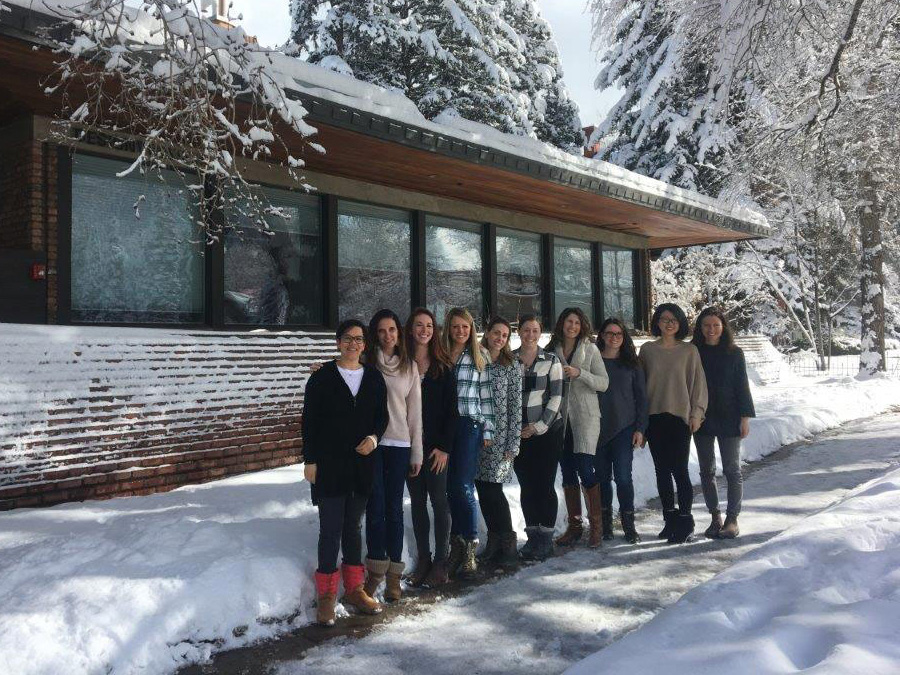News Release

Aimee, pictured fourth from the left, with the women of Design Workshop’s Aspen studio.
Interview with Aimee Duffy
Posted 9/8/2020
What project are you most excited about right now?
We know that our best work happens when individuals with diverse cultural backgrounds and experiences come together to share ideas, which is why one of our firm values is that “we embrace diversity on all levels to expand beyond the workplace, resulting in equity in the firm and society.” We’re re-launching our Dr. Charles Fountain Internship Program, for undergraduate or graduate Black, Indigenous and People of Color (BIPOC) students studying landscape architecture, urban design or planning. Dr. Charles Fountain was Professor Emeritus of Landscape Architecture and founder of the Landscape Architecture Program at North Carolina A&T University, a HBCU. Landscape architecture and planning tends to lack diversity with BIPOC underrepresented at all levels. This is only one action that we’re taking to address a long-term, systemic problem. This internship will allow our team to exchange ideas with talented diversity students, foster both firm and individual growth, better represent the communities in which we work, strengthen our design process and continue to create a global community in the workplace.
How has your job evolved as a result of the COVID-19 pandemic? How has it changed recruitment and retention?
COVID-19 tested me as a human resources professional and as a leader. Suddenly, I had to be well versed in public health, epidemiology, rapidly changing employment laws, and be able to predict the future. Design Workshop has had an emergency preparedness plan in place for several years, something that is relatively rare for companies of our size. We hold quarterly trainings to prepare for potential emergency situations. When COVID started to make the news internationally, our team had to navigate massive amounts of information and scale actions to protect our staff while quickly adapting our people and processes to remote work environments. We had to ensure our staff had the tools and resources to continue to produce exceptional work for our clients. We had to communicate with them so that they knew the expectations in our new reality. We had to support them both in and out of work as they navigated personal challenges like working without childcare or being isolated from family and friends. It’s been a constant learning process. Fortunately, our team is incredibly smart and nimble, so we’ve all been able to adjust to remote operations and the ever-changing employment laws and health guidelines. This has been a once-in-a-career experience.
What trends are on the horizon from a human resources perspective?
Many workplaces are amid a paradigm shift, with less focus on how many hours you spend at your desk or in the office. Rather, the value you generate and the results you produce are measures of your success. More flexible working environments will be the norm rather than an exception across most professional industries. At Design Workshop, we know that our collaborative workshop environment generates the best results for our clients. Historically, this happened in-person, with staff drawing shoulder-to-shoulder around a table. But as our office locations grew, and we teamed cross-office, we learned to leverage virtual tools which allowed us to uphold our workshop culture and collaborate digitally when we can’t be physically together. This important value will always be at the core of how we work and there is always going to be value in facetime, especially for mentorship. Adaptability and flexibility to how work gets done will continue to become more widely accepted even as the threat of the pandemic recedes. It’s working for us because we’re driven by our mission, trust each other as teammates and are dedicated to delivering excellent project work to our clients.